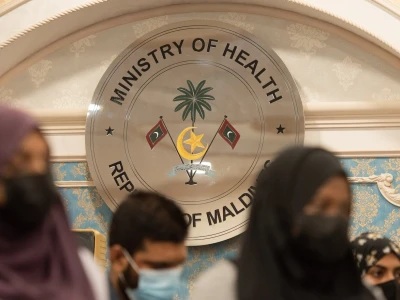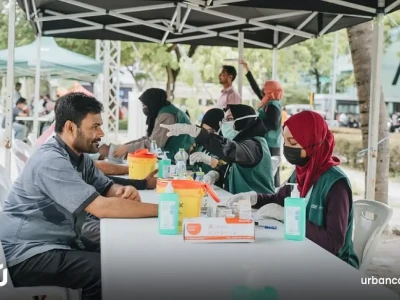
No Meningococcal outbreak, vaccinate if high-risk: Maldives govt
Symptoms appear between one and 10 days after infection.
Top Stories
By
Shahudha Mohamed
The Ministry of Health has confirmed that though a case of Meningococcal disease has been detected in the Maldives and denied reports of an outbreak.
A case of invasive Meningococcal disease, a serious bacterial illness that spreads through respiratory or throat secretions, like saliva or spit, from person to person, was found in a person who arrived in Maldives after the Hajj pilgrimage. The Health Protection Agency (HPA) confirmed such a case on Tuesday night.
Meanwhile, the agency is conducting contact tracing and providing prophylactic medication to those who have been in contact with the patients.
The Ministry of Health posted in X on Thursday that, so far, there is no outbreak of Meningococcal disease in Maldives, according to their tracing.
The public and health workers are not required to get the Meningitis vaccine as the disease is not spreading. However, the ministry recommends that people at risk be vaccinated, meaning those with compromised immunity due to chronic illnesses or those at high risk of exposure to the disease.
The ministry specified who the high-risk people are as:
-
People travelling to countries where Meningococcal disease is common, Saudi Arabia, for instance, which includes pilgrims returning from Hajj or Umrah
-
People with ‘special circumstances’; the ministry did not elaborate on the ‘circumstances’
People who are in closest contact with someone who has invasive Meningococcal disease for extended periods of time are more likely to become infected. Symptoms appear between one and 10 days after infection.
HPA has identified how it determines a ‘close contact’ for meningococcal, which are people who have intimate contact with the infected person. Thus:
-
People that share a home with an infected person
-
People who travelled with an infected person on a long journey, whether by bus or air
-
People who have been exposed to respiratory and throat secretions, such as saliva or spit from an infected person
The HPA also said that the Meningitis vaccine protects against the disease. The meningitis vaccine takes about two weeks to develop the body's immune system, so the vaccination is required at least 2 weeks in advance to prevent the disease, HPA said.
Therefore, a person who has not been vaccinated for any reason this year or has not completed two weeks between getting vaccinated and leaving the country is advised to visit a doctor immediately if they develop symptoms of the disease.
Symptoms of invasive Meningococcal:
-
Headache
-
Stiff neck
-
Nausea and vomiting
-
Confusion or disorientation
-
A rash made up of pinpoints that look dark, in shades of red and purple, or a bigger area that looks like a bruise
-
Seizures
-
Being bothered by bright light or light sensitivity
-
Being sleepy, tired or fatigued
-
Rapid breathing




